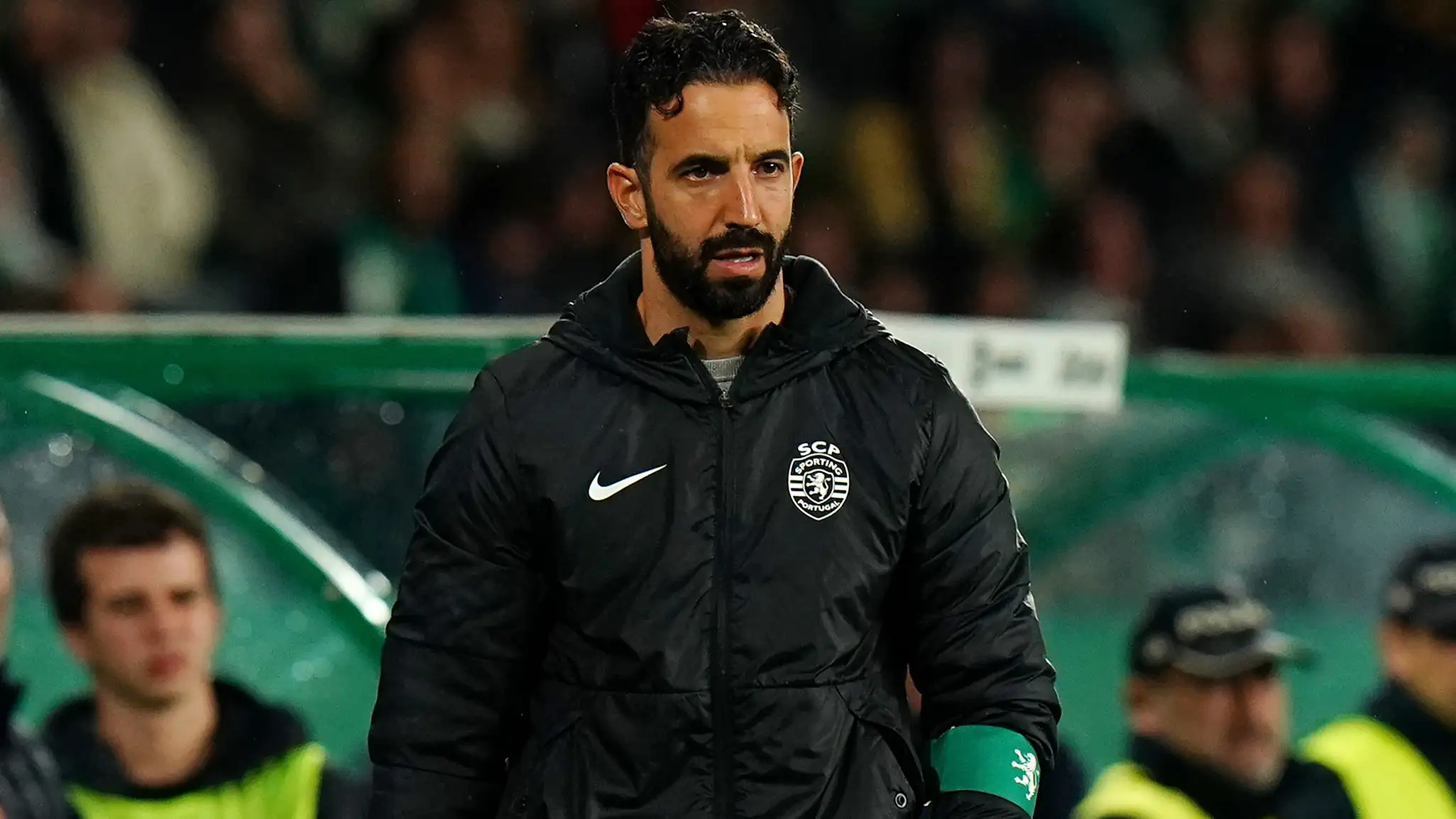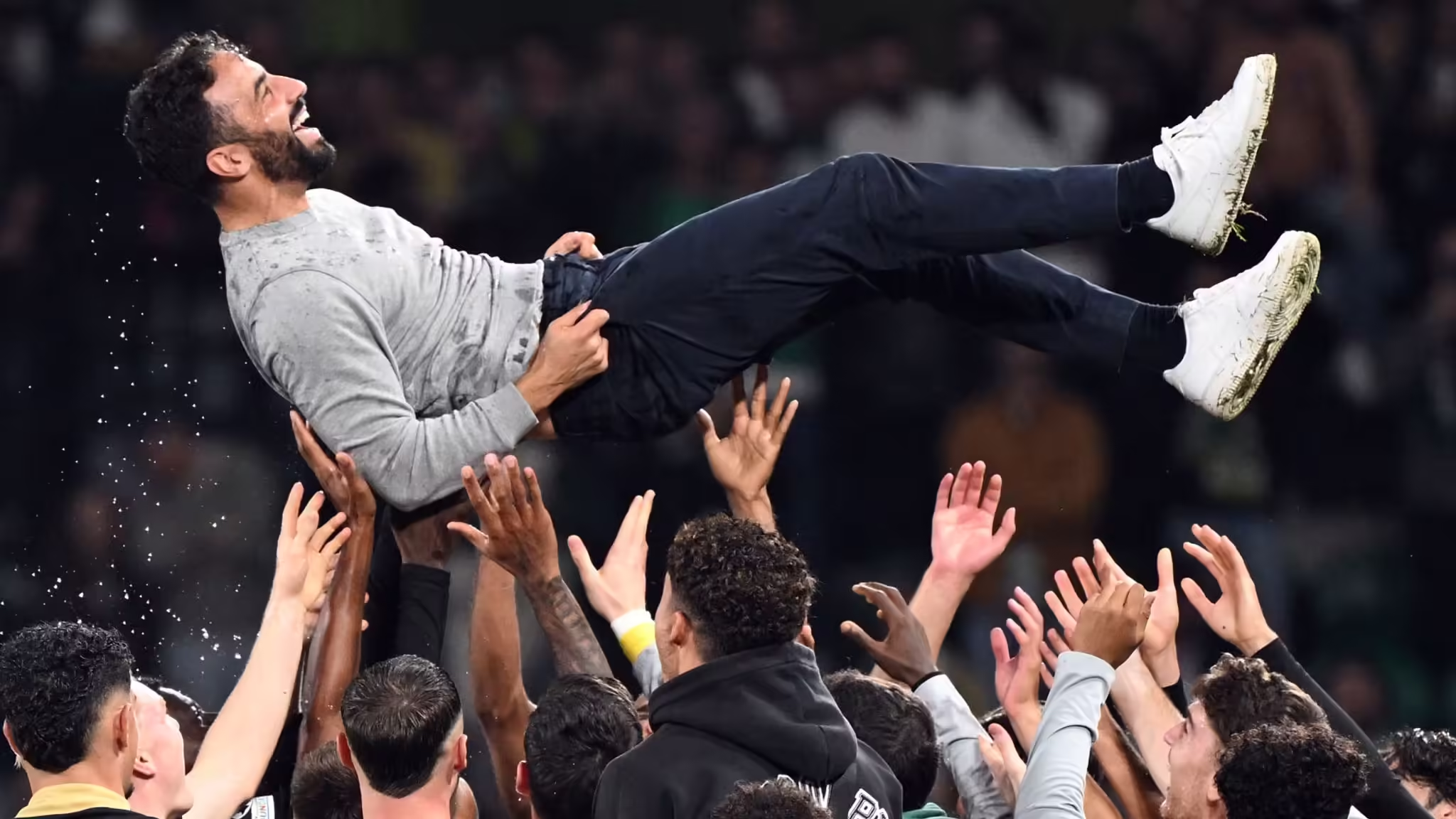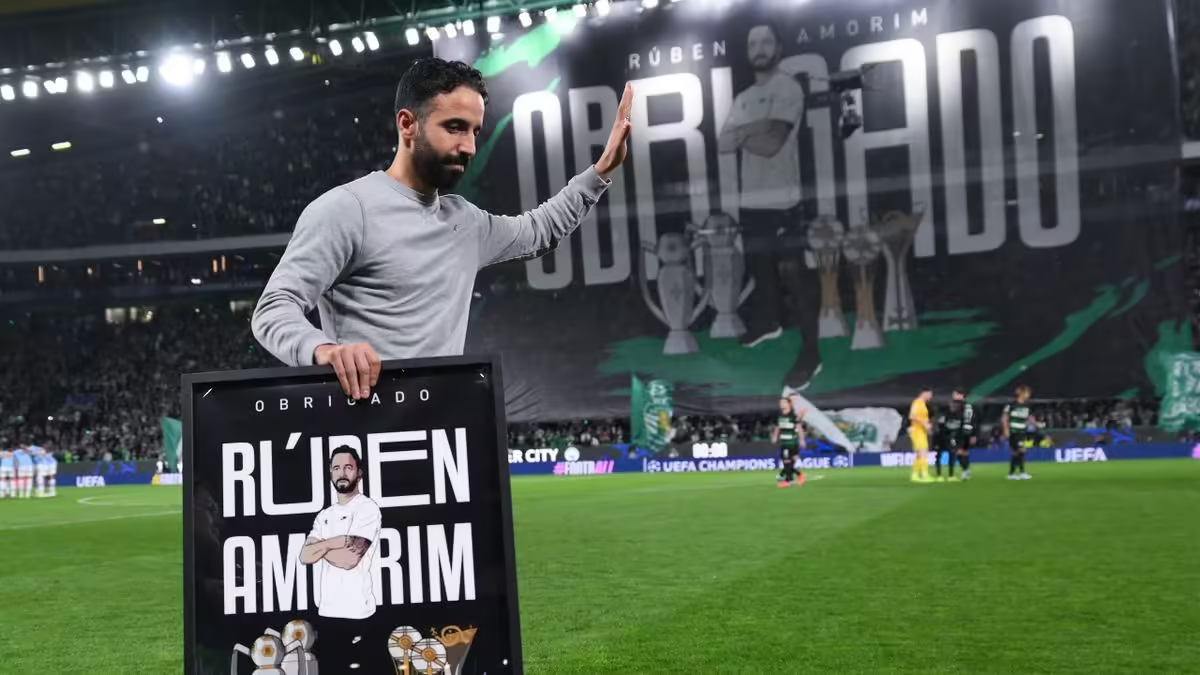Rúben Amorim Career Profile: From Midfield Maestro to Rising Managerial Star
Rúben Amorim has become one of the most talked-about young managers in European football. His journey from a professional player to an ambitious coach reflects a deep understanding of the game, strategic brilliance, and a knack for transforming teams. Known for his innovative tactics and development of young talent, Amorim has already made a mark in Portuguese football and now stands poised to make an impact on an even larger stage.
This article traces Amorim’s career from his early days as a professional player through his rapid rise as a manager, outlining the experiences, philosophies, and accomplishments that have shaped him into a formidable coaching talent.
Amorim’s Early Life and Playing Career
Born in Lisbon on January 27, 1985, Rúben Amorim displayed an early passion for football. He joined the youth ranks of Benfica, one of Portugal’s biggest clubs, where he began developing his skills as a midfielder. Known for his intelligence on the field, Amorim was recognized for his ability to read the game, control tempo, and connect defense with attack. These qualities would later become crucial elements in his coaching style, where an emphasis on midfield dominance and tactical intelligence remains evident.
Amorim’s professional playing career began in earnest at Belenenses, a Lisbon-based club where he spent five years (2003–2008). His performances attracted attention, particularly for his versatility. While he was primarily a central midfielder, he could also play on the right side of the pitch when needed. His adaptability and tactical discipline eventually caught the eye of Benfica, who re-signed him in 2008.
At Benfica, Amorim enjoyed success, winning several domestic titles, including three Primeira Liga titles and four Taca da Liga trophies. He was a key figure in the squad, often providing stability in midfield with his controlled passing and positional awareness. Although not a prolific goal scorer, his influence on the pitch was crucial in controlling games and maintaining team structure. Amorim’s playing career was steady but affected by recurring injuries, which ultimately led to an early retirement. In 2017, he officially hung up his boots, but it was clear that his love for the game would lead him toward a new path—coaching.
Rúben Amorim’s Transition to Coaching

Upon retiring, Amorim wasted no time transitioning into coaching, and he began working toward his coaching badges. His experiences as a player, particularly his tactical understanding and discipline, made him a natural fit for the role. However, rather than rushing into a high-profile position, Amorim took a measured approach, starting with smaller coaching roles that allowed him to develop his style and philosophy.
Amorim’s first formal coaching role came with Casa Pia, a small Portuguese club competing in the third division. Although he was there for a brief period in 2018, it allowed him to get a feel for management. Casa Pia’s limited resources presented challenges, but Amorim embraced them, focusing on instilling discipline, structure, and a sense of unity within the squad. His early success at Casa Pia did not go unnoticed, and soon, bigger opportunities came knocking.
In January 2019, Amorim took on a new role as head coach of Braga’s B team, where he began implementing a more refined version of his tactical vision. He introduced a pressing style with a 3-4-3 formation, emphasizing high energy, quick transitions, and well-drilled organization. The B team saw improvements, and within a year, he was appointed as head coach of Braga’s senior team.
Braga and the Rise of a Tactician
Amorim’s tenure with Braga’s first team marked a pivotal point in his career. He joined in 2020 and immediately made an impact, leading the team to a series of impressive performances. Despite his relatively limited experience at the senior level, he showcased a mature understanding of tactics and an ability to motivate players. His 3-4-3 formation became a staple, prioritizing fluid movement and disciplined defensive organization.
One of Amorim’s standout achievements with Braga was winning the Taca da Liga in the 2019-2020 season. This was Braga’s first domestic cup victory in their history, and it highlighted Amorim’s ability to prepare his team for high-stakes games. His success at Braga didn’t just demonstrate his tactical acumen but also showed his potential to lead a team to silverware.
Amorim’s Sporting CP: The Breakthrough

Amorim’s work at Braga quickly earned him admirers, and Sporting CP took notice. In March 2020, they made a bold move, signing him as their head coach for a record €10 million fee—one of the highest sums paid for a manager in Portuguese football history. The investment proved worthwhile as Amorim wasted no time transforming the team.
Under Amorim’s guidance, Sporting CP underwent a remarkable revival. In the 2020-2021 season, he led the club to their first Primeira Liga title in 19 years, an achievement that not only ended their title drought but also restored the club’s stature in Portuguese football. Sporting finished the season unbeaten, showcasing a disciplined, resilient style of play that reflected Amorim’s influence.
Amorim’s success with Sporting was built on a foundation of tactical flexibility and youth development. His 3-4-3 formation continued to be the primary system, with an emphasis on high pressing, quick ball recovery, and fluid attacking movements. He relied on a mix of experienced players and young talents, such as Pedro Gonçalves and Nuno Mendes, who flourished under his guidance. By trusting in younger players and blending them with experienced members, Amorim created a balanced and cohesive squad.
Beyond winning the Primeira Liga, Sporting CP also lifted the Taca da Liga in the 2020-2021 season, marking an incredible double for Amorim. His ability to perform in both league and cup competitions underscored his skills as a manager capable of adapting to different challenges and maintaining focus across multiple competitions.
Key Elements of Amorim’s Coaching Style
Rúben Amorim’s tactical approach is rooted in a few key principles that define his style and set him apart from other managers:
- High Pressing and Quick Transitions
Amorim emphasizes a high-pressing game that forces opponents into making mistakes. His teams are well-drilled in pressing high up the pitch, making it difficult for opponents to build from the back. Once possession is regained, Amorim’s teams transition quickly into attack, often catching opponents off-guard. - Tactical Flexibility
While Amorim’s preferred formation is a 3-4-3, he is not rigid in his tactics. He frequently adjusts his approach based on the opponent and game context, displaying a level of adaptability that is essential in modern football. This tactical flexibility allows him to make adjustments during matches, something that has proven valuable in high-pressure situations. - Focus on Youth Development
Amorim’s commitment to developing young players is evident in his tenure with Sporting CP, where he integrated several academy products into the first team. He provides young players with significant responsibilities, helping them grow in confidence and adapt to top-level competition. This emphasis on youth development aligns well with clubs that prioritize nurturing talent from within. - Defensive Organization and Discipline
Although his teams play attacking football, Amorim places a strong emphasis on defensive organization. His 3-4-3 formation is structured to provide defensive solidity, with wingbacks dropping back to support the defense when needed. This balance between attack and defense has been a cornerstone of his success.
Challenges and Future Prospects

Despite his achievements, Amorim’s career is still in its early stages, and he faces challenges as he takes on new roles, especially in leagues as competitive as the Premier League. Adapting his style to the demands of English football and dealing with the expectations that come with managing a high-profile club will test his abilities further. However, his tactical intelligence, adaptability, and commitment to development give him the tools to succeed.
As he continues to grow, Amorim’s path suggests that he could become one of Europe’s elite managers. His combination of youthful energy, tactical insight, and ability to motivate and develop players has already distinguished him from his peers. With each new challenge, he has demonstrated resilience and creativity, traits that bode well for a bright future.
Conclusion
Rúben Amorim’s journey from a solid midfielder to a celebrated coach in Portuguese football has been marked by ambition, adaptability, and a forward-thinking approach. His tactical philosophy, emphasis on youth, and proven record of success have made him a highly sought-after manager. Although his career as a coach is just beginning, Amorim’s impact on Portuguese football is already significant, and his potential to shape the future of European football is immense.
As he takes on new challenges, Rúben Amorim’s career will be one to watch. With a foundation built on discipline, intelligence, and innovation, he has all the attributes of a future managerial star.
Read More:
Rúben Amorim’s Arrival at Old Trafford: A New Chapter for Manchester United
South Africa Starting Lineup Vs Congo Republic and Match Preview Analysis
First Red Card For Manchester United Captain Bruno Fernandes
Los Angeles FC Starting Lineups Vs Vancouver Whitecaps and Match Preview Analysis
Tags: Amorim’s Early Life and Playing Career, Braga and the Rise of a Tactician, From Midfield Maestro to Rising Managerial Star, Key Elements of Amorim’s Coaching Style, Rúben Amorim’s Transition to Coaching